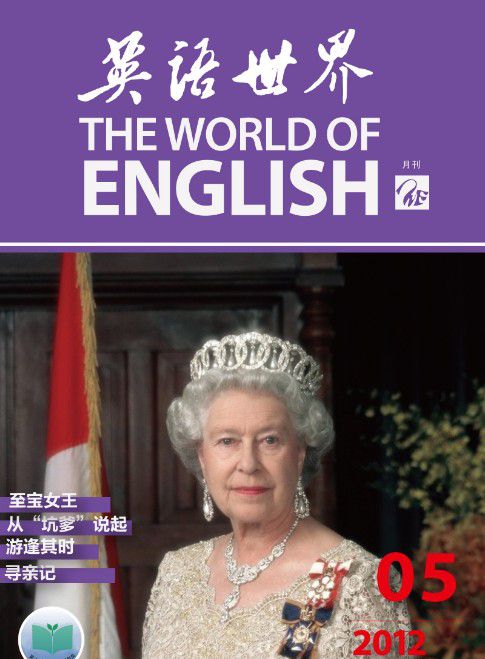地道英语:从“坑爹”说起
|
从“坑爹”说起 (选自《英语世界》2012年第5期)
网络语言常用夸张的说法,现在流行“坑爹”一词。“坑爹”的意思,泛指“坑人”或“骗人”,连父亲老子都敢骗,可见害人程度之深。如果说话人自己被骗,一气之下说出“坑爹”,意思就是“坑我”。说句占便宜的话,以解心头之恨。英语可以译为 cheating, deceiving me, just like kidding your father,例如: 1. 这样做,不是明摆着坑爹吗?Doing so is obviously cheating, isn’t it? 2. 你卖给我的这件衣服质量这么差,不是明显坑爹吗? You sold me such an inferior coat. Obviously, you are deceiving me. 3. 你连我都敢蒙,简直就是坑爹。You even dared to deceive me. It is just like kidding your father. “坑”的原义是“地面凹下去的地方”,可能是自然形成的,也可能是人为造成的。英语可以译为 hole, pit, hollow, puddle,例如: 4. 炸弹在地面上炸了一个大坑。The bomb left a big hole/ blew a huge hole in the ground. 5. 这些废料被倾倒进这个深坑。The waste materials were dumped into the deep pit. 6. 这匹白马一跃跳过道路上的一个坑。The white horse took a great leap over a hollow in the road. 7. 猪喜欢在泥坑里溅水花。Pigs love splashing in the muddy puddles. “一个萝卜一个坑”,比喻每人都有一个位置,没有多余。我们有如下译法: 8. Each radish grows in its own hole. (直译) 9. Each has his own work to do. (意译) 10. There is nobody to spare. (意译) 比较上面三种译法,我们可以看出:如果直译,英美人可能不解其义;如果译出比喻意义,原来的韵味就没有了。由于语言和文化差异,翻译俗语是件非常困难的事情。 11. 这条路坑坑洼洼,很难走。This road is very bumpy and difficult to walk on. 12. 小道坑坑洼洼,这辆大车走在上面颠簸得很厉害。The path was full of bumps and hollows, on which the cart bumped along violently. 13. 这个旧陶罐子表面坑坑洼洼的。The surface of the old pottery jar is not smooth. 14. 这个老人说他的一生坑坑洼洼。This old man said his life was full of setbacks and frustrations. 人们在地面挖一个洞,也可以形成“坑”,它的第一个功能是“埋死人或死动物”。英语可以译为 pit, hole,例如: 15. 他们就地挖了一个深坑,将这个无名战士的尸体掩埋了。They dug a deep pit on the spot and buried the dead body of the unknown soldier. 16. 防疫人员在田野里挖了一个深坑,把病鸡和死鸡都埋了。The anti-epidemic workers dug a deep hole in the field, and buried the diseased and deceased chickens. 17. 秦始皇统一中国后下令焚书坑儒,以巩固中央集权统治。After the unification of China, Qinshihuang, the first emperor of the Qin Dynasty, had classic books burned and Confucian scholars buried alive so as to consolidate his centralized domination. 18. 史书记载这个将军如何下令他的部下坑杀降兵。The history book recorded how the general ordered his subordinates to bury those surrendered soldiers alive. 19. 这位老农回忆了日本鬼子如何坑杀他村子里的无辜百姓。This old farmer recalled how the Japanese soldiers buried alive the innocent people of his village. “坑”的另一个功能是“充当陷阱”。挖个坑,可以使人落入其中。古战场上的“绊马坑”就是一种使奔跑的战马掉入的陷阱。英语可以译为 horse trap,例如: 20. 由于毫无戒备,这个士兵和他的战马陷入绊马坑。Unsuspecting, the soldier and his battle steed fell into a horse trap. 注意trap 还有a light carriage with two wheels pulled by a horse的意思,即“两轮轻便马车”。因此,horse trap另有“两轮轻便马车”的意思。我们要根据上下文判断其准确意义,例如: 21. A man travelling in a horse trap was reported to have died after the animal bolted, throwing him into the road. 据报道,一个乘坐两轮轻便马车的男子因马匹脱缰把他抛在道路上而使他摔死。 pony 是“小马”。但是,pony trap没有“绊马坑”的意思,只指“小马拉的两轮轻便马车”,例如: 22. We took a 45-minute tour around the small town in a pony trap.我们乘坐马拉两轮轻便马车围绕这个小镇游览了45分钟。 23. The tourists all enjoyed a pony-and-trap ride in the countryside.这些旅游者都很喜欢在乡下乘坐两轮轻便马车兜风。 作为动词,“坑”现在更常见的意思是“设个骗局或利用狡诈手段使人上当受骗”。英语可以译为 to cheat, to swindle, to deceive, to hoodwink, to defraud, to trick, to entrap。“被坑”或“挨坑”的意思是“上当”或“受骗”,英语可以译为 to be cheated, to be deceived, to be tricked, to fall into a trap,例如: 24. 这个不法商人销售伪劣商品坑骗消费者。The unlawful trader cheated the consumers by selling them fake and inferior commodities. 25. 这个老太太发现这个骗子坑了她几百美元。The old woman found that the cheat had swindled her out of hundreds of dollars./The old woman found that the cheat had swindled hundreds of dollars out of her. 26. 这个游商以次充好,坑蒙顾客。The hawker deceived the customers by selling them substandard products as good-quality ones. 27. 有的小贩漫天要价,坑骗外地游客。Some vendors hoodwink outside tourists by charging them exorbitant prices. 28. 他坑骗了这家公司一百万美元。He defrauded the company of one million dollars. 29. 这伙骗子提供假信息坑害顾客。The group of swindlers provided false information to entrap customers. 30. 当这个买主发现他以低价从小贩那里买的戒指实际上是个假货时,意识到自己被坑了。The buyer realized that he had been tricked when he found the ring he had bought at a low price from the pedlar was actually a fake.
【版权声明:本文内容版权属于《英语世界》杂志,由该杂志独家授权爱思网使用。版权所有,未经书面许可,任何机构不得全部或部分转载。】 欢迎在邮局订购《英语世界》杂志,邮发代号为2-445 |









